Sometimes, a book can have a life-changing impact. For Payton McGriff, that turned out to be true.
McGriff was a sophomore at the University of Idaho when she read Half the Sky, which examines the oppression of women in developing countries. She was shocked to learn that 129 million girls worldwide are not enrolled in school.
“In much of the world, women and girls are responsible for the lion’s share of household duties and so a woman’s perceived value is what she can contribute to the home,” said McGriff, now 29. “It’s seen that girls won’t ever be putting (their) education to use.”
Additionally, many impoverished families who want to educate their daughters can’t afford tuition fees, school supplies, and the uniform mandated in many countries.
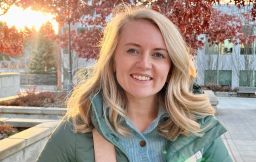
“A uniform is typically one of the more expensive pieces,” McGriff said. “They can be one of the most cost-effective ways to keep girls in school.”
Studies have shown that providing free uniforms can reduce dropout rates by 16 percent and absenteeism by more than 35 percent. This simple solution took root in McGriff’s mind and started her journey helping women and girls transform their lives.
Today, her nonprofit, Style Her Empowered – known as SHE – provides 1,500 girls a year in the African country of Togo with free uniforms, school fees, supplies, tutoring, and much more.
More than a college project
A marketing major, McGriff was pursuing her dream job in business when she took an entrepreneurship class her senior year. Tasked with creating a business or nonprofit for a class project, she remembered the notion of the school uniform and developed an idea. She sought feedback from Romuald Afatchao, a professor from Togo, and he encouraged her to join a spring break trip to his hometown of N?tse to do field research.
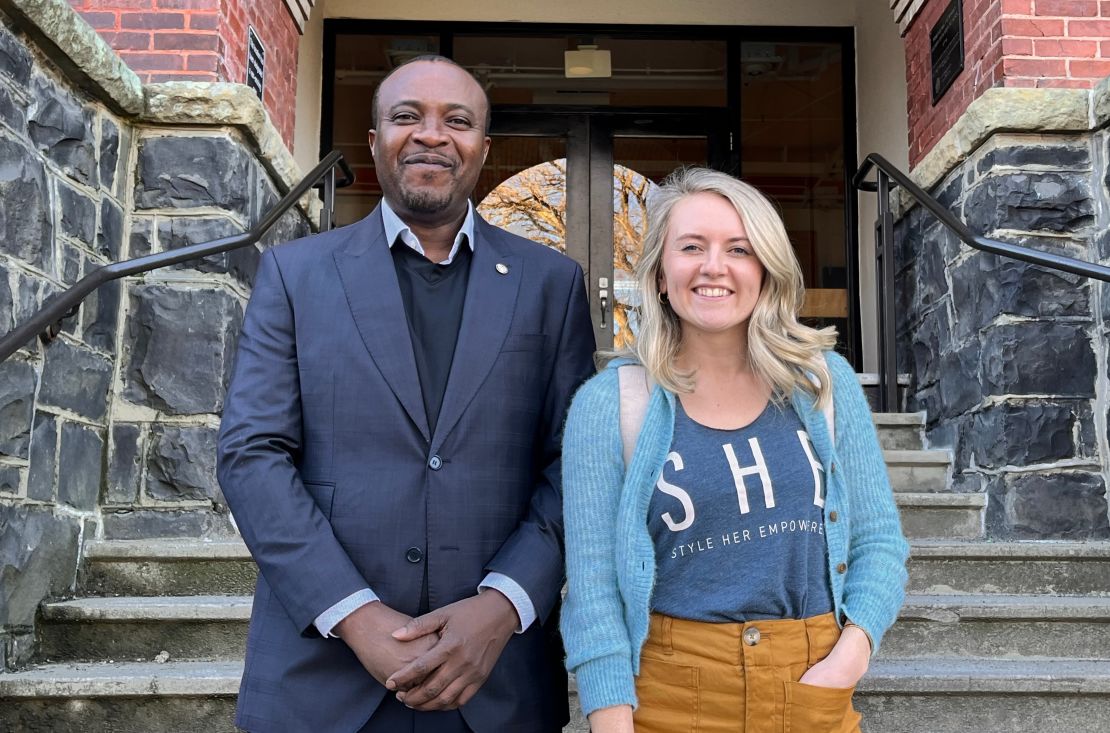
There, McGriff saw the reality of what girls faced. She met Elolo, a young woman who started her chores at 3:30 a.m. so she could attend school and did homework by streetlight at night since her house had no electricity. Her family’s financial struggles meant she eventually had to quit school so her brothers could continue.
“It made all of the stories that you read in the book so real,” McGriff said. “Talent and resilience and resourcefulness is so equally distributed worldwide, but opportunity is not.”
McGriff interviewed groups of girls about obstacles that made attending school difficult. They mentioned a lack of money and support, but when she asked about uniforms, the reaction was immediate.
“Every girl stood up and raised her hand so high and, not only that, told a very expressive story about how she had been shamed out of school because she didn’t have her uniform,” she said. “I realized, ‘Okay, this is a place to start.’”
McGriff returned home, pitched her education project at entrepreneurship competitions, won $35,000 in seed money, and eventually turned down her dream job to bring her vision to life. She graduated in May 2017 and returned to Togo.

The ‘uniform that grows’
That first year, the group hired local seamstresses and provided uniforms and school fees to 65 girls. But they soon ran into a problem.
“We realized a problem that probably every parent on the planet would find obvious,” McGriff said. “Our students were outgrowing them very quickly.”
Her team wanted to create an adjustable uniform that could last students longer but couldn’t find patterns that worked. Eventually, the seamstresses – with input from the students, McGriff, and others – designed their own solution, and the uniform that grows was born.
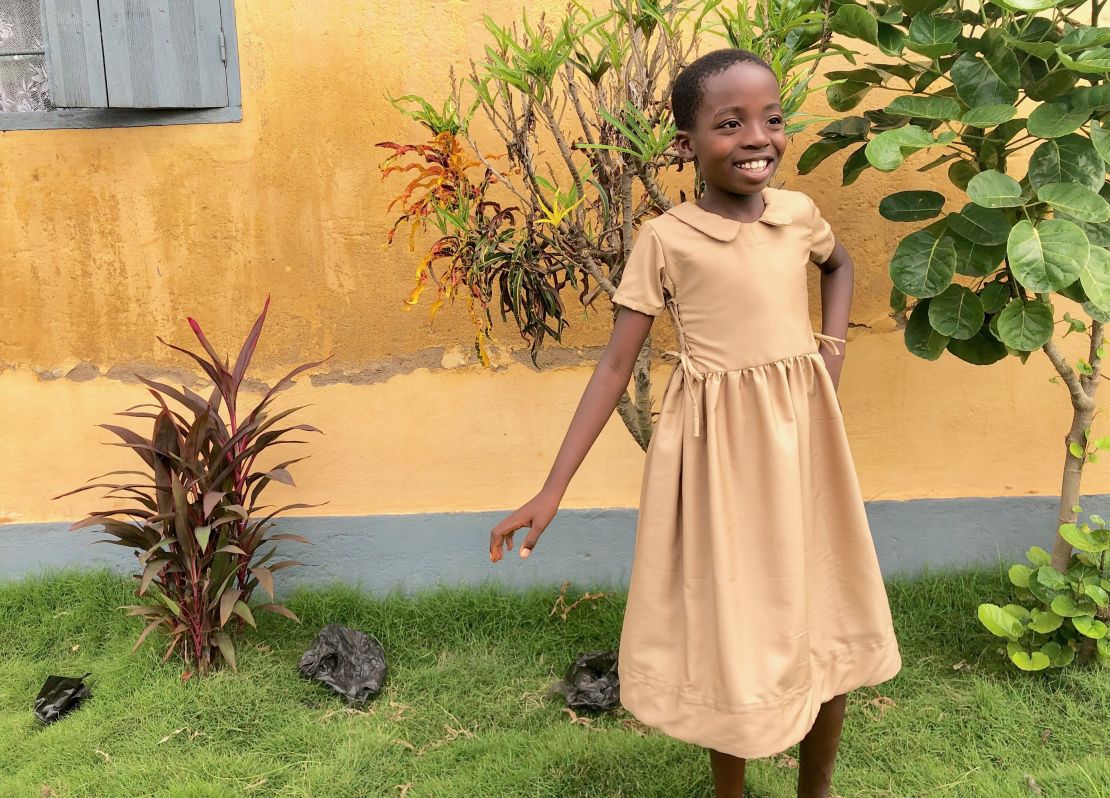
The dress now has adjustable cords running along the side that create a tailored fit for every body type, while extra fabric hemmed underneath enables it to grow up to a foot in length. The uniform can fit a girl for up to three years, adjusting six sizes; when finally outgrown, it can be handed down to younger girls.
What’s more, 100% of the fabric scraps are recycled into reusable menstrual pads made by SHE seamstresses and distributed to the students, who previously stayed home from school during their period because they lacked sanitary supplies.
Empowering girls and elevating women
Today, SHE serves girls in N?tse as well as 20 rural villages in southern Togo, where 69 percent of households live below the poverty line. Girls in these areas are at a higher risk to drop out of school, so SHE strives to remove all financial barriers by also providing tuition fees and school supplies. Once enrolled, students receive weekly tutoring sessions. As a result, SHE’s students consistently pass their exams at higher rates than the national average.
“Our students have increased their proficiency and performance in school dramatically,” McGriff said. “If given the opportunity, they thrive.”
SHE continues to develop new ways of supporting their students. The group recently created a mobile learning lab that brings books and supplies to under-resourced communities, as well as afterschool Girls Clubs where student ambassadors are trained to run workshops for their peers.
“It’s all (done) with this tone of empowering girls and helping girls to understand their rights and their opportunities in society,” she said. “We see our students really start to blossom.”
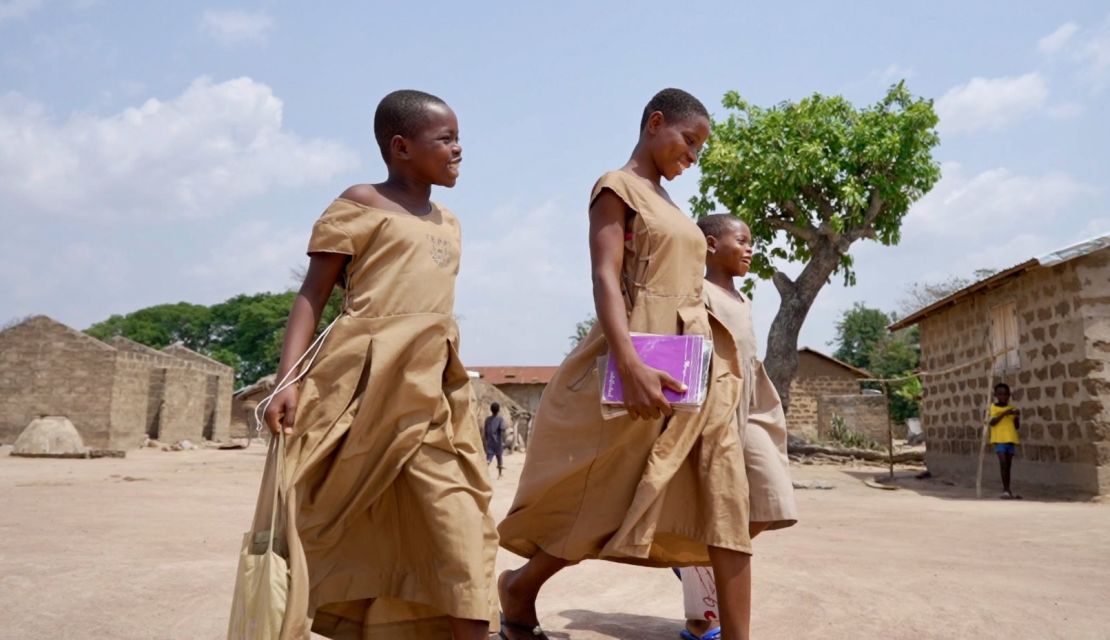
McGriff also brings opportunities to the women that SHE employs. Twenty seamstresses work full-time at the group’s two factories, and their average salary is 75 percent higher than Togo’s minimum wage. All employees get generous benefits, like unlimited paid sick leave, three-months paid maternity leave, and free childcare.
And that’s not all. On average, women in Togo only have around three years of education – about half that of men – and 55 percent are illiterate. When McGriff realized that most of the group’s seamstresses had little formal education, she started a ‘paid to learn’ program to help teach them basic literacy, math, and financial skills.
The seamstresses also travel to the villages with other staffers to help distribute uniforms and school supplies. They’re proud of their role in helping girls get opportunities they didn’t have.
“Watching them flourish is really just … incredibly inspiring,” McGriff said. “When you’re part of SHE, you’re part of this movement.”
Locals taking the lead
McGriff supervises the project remotely from Idaho, ensuring that the local women who run the program in Togo take the lead in shaping the organization. Eventually, McGriff hopes SHE can become self-sustaining so her role can be further reduced, which has been her goal from the beginning.
“The vision for starting SHE was always for it to become locally led because local women understand the challenges and the solutions far better than I ever could,” she said. “I may have struck the original match that started SHE. But what I’m so beyond inspired by is watching our team carry the torch.”
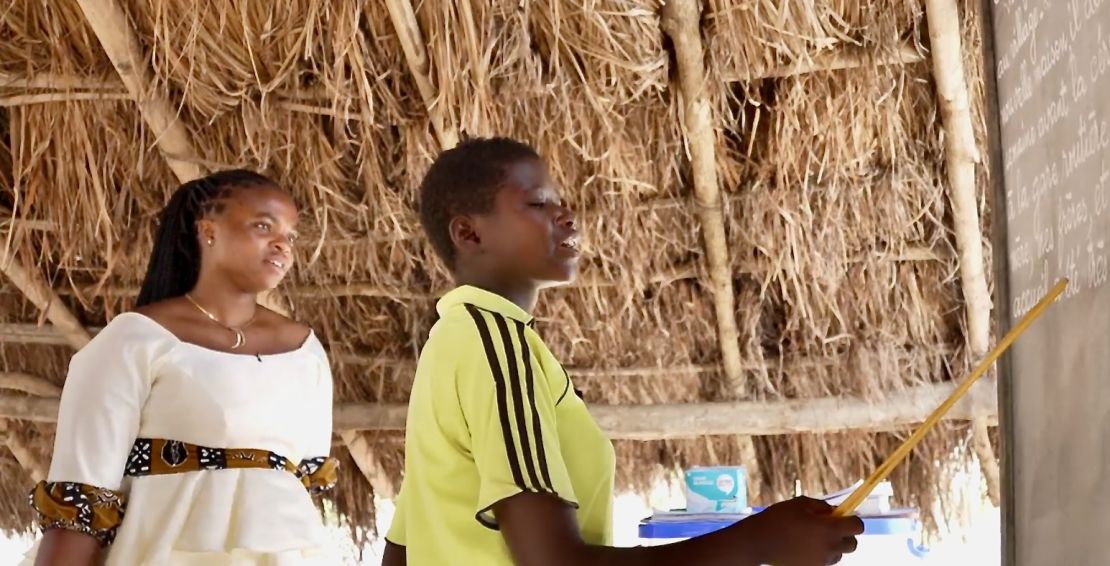
One important member of that team is Elolo, who McGriff met on her first visit to Togo. Elolo was the first girl enrolled in the program, eventually graduated from high school, and is now the group’s Assistant Director and has recruited hundreds of girls to SHE. What’s more, with her salary, she’s been able to care for her family and install electricity in their home. Her success makes McGriff beam with pride.
“Elolo is just the epitome of when you educate a girl, you educate a community,” she said. “She is a role model for every girl in our program who can see themselves in her.”
McGriff eventually hopes to replicate SHE worldwide. Although she’s thousands of miles away from the women she works with, she feels a strong sense of connection to them.
“We are so bonded by this incredible work that we get to do together,” McGriff said. “We’re watching each other explore our full potential. … It’s so girl power. It’s so fun.”
Want to get involved? Check out the Style Her Empowered website and see how to help.
To donate to Style Her Empowered via GoFundMe, click here


